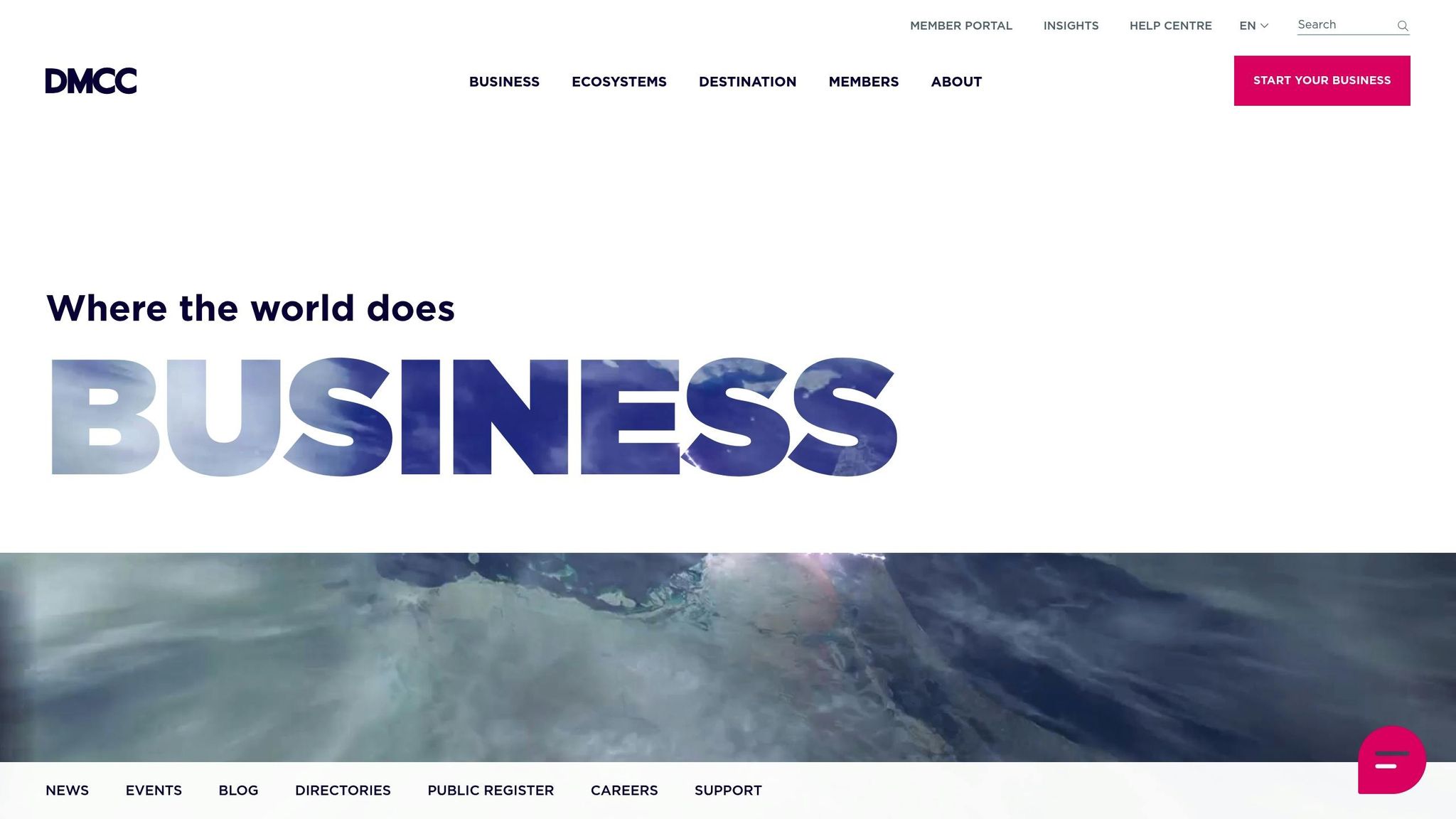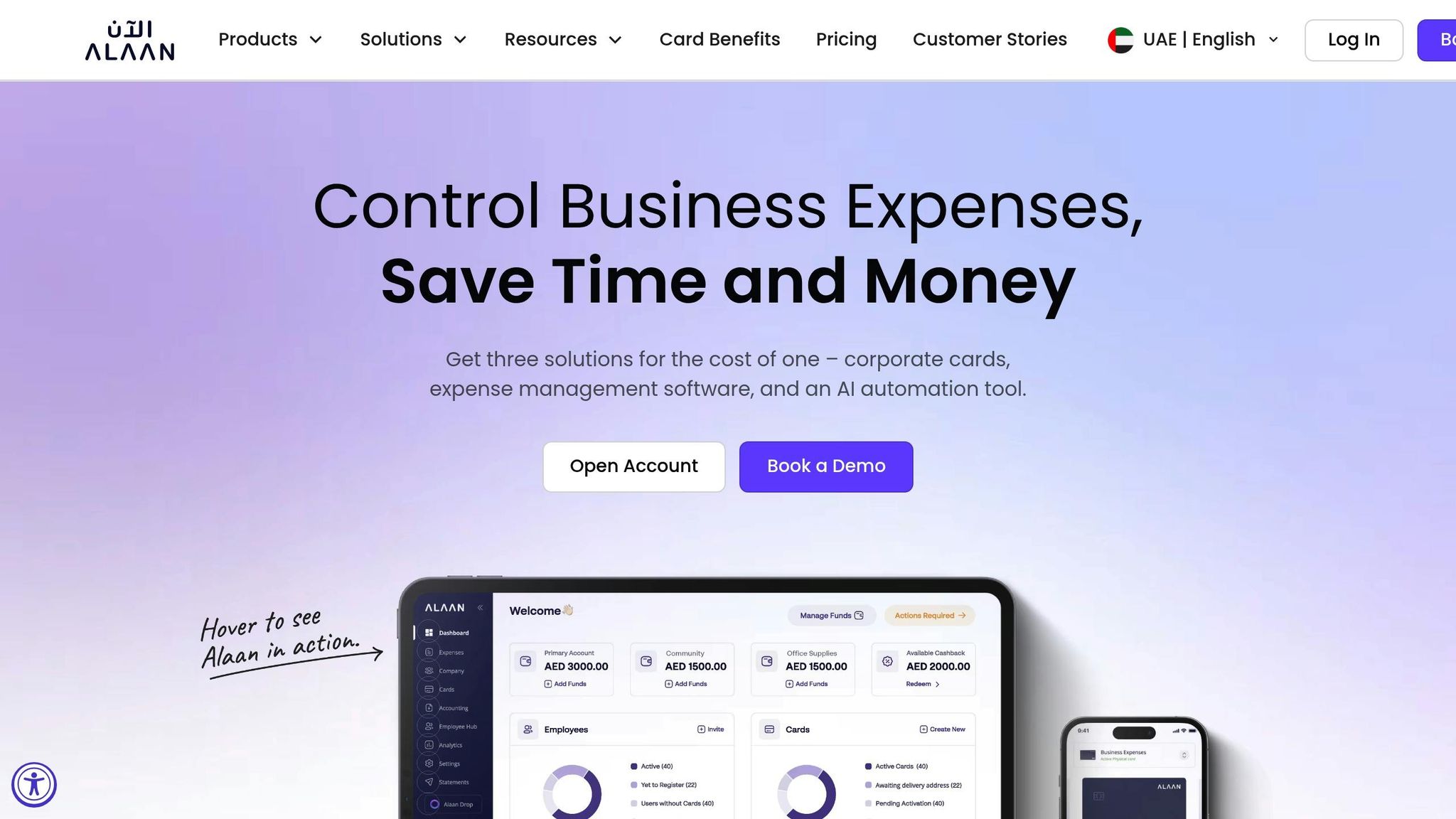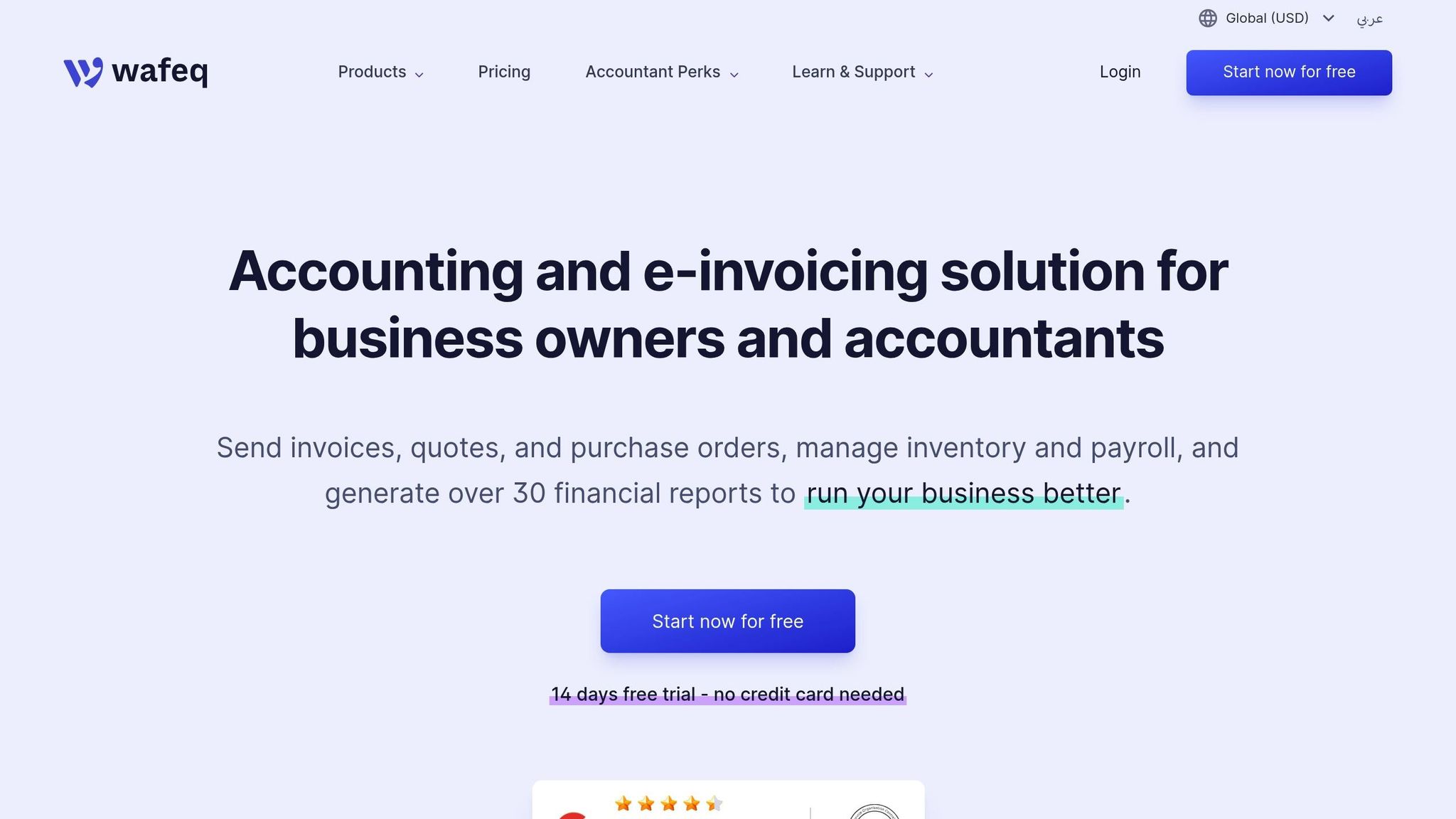
UAE startups are leveraging resource sharing to grow faster while cutting costs. By pooling assets, knowledge, and tools, businesses in the Emirates are finding innovative ways to overcome challenges like high operational costs and intense competition. This collaborative approach is reshaping the entrepreneurial landscape, offering startups access to resources that would otherwise be out of reach.
By embracing collaboration, UAE startups are creating efficient, scalable, and sustainable business models. Whether it’s sharing office space, tapping into shared talent, or joining digital platforms, the benefits are clear: reduced costs, faster growth, and new revenue opportunities.

Startups in the UAE have access to a variety of resource-sharing models tailored to meet different business needs and stages of growth. These models have been developed to align with the fast-paced entrepreneurial environment of the Emirates, offering practical solutions that help businesses grow efficiently.
Co-working spaces are a key part of the UAE's thriving startup ecosystem, offering flexible and affordable office solutions. These spaces allow startups to scale their operations without the burden of long-term property commitments, which can be a major challenge for early-stage businesses.
The pricing for co-working spaces makes them particularly appealing. For instance, Regus, a well-known provider in Dubai, offers desk rentals ranging from AED 1,045 to AED 3,495 per person per month on a 24-month contract. For those seeking even more flexibility, monthly memberships start at AED 499, and day passes are available for AED 169 [2].
More than just cost savings, co-working spaces create opportunities for organic collaboration. Startups often find themselves exchanging ideas with neighbouring companies, whether it's marketing tips or technical know-how. These spaces also come with added perks like meeting rooms, presentation facilities, and administrative support - features that would otherwise require significant investment. This setup allows startups to maintain a professional image while keeping expenses under control. Beyond the physical benefits, these spaces facilitate shared expertise, helping businesses cut costs and grow faster.
The UAE's expanding tech sector has opened doors for startups to tap into specialised talent without the overhead of full-time hires. This approach not only reduces costs but also speeds up market entry by providing access to on-demand expertise.
For context, local talent charges range from AED 250 to AED 450 per hour, while offshore teams charge between AED 120 and AED 250 per hour [5]. Development costs vary by project type: simple apps cost AED 50,000–100,000, mid-tier projects AED 100,000–200,000, and enterprise systems AED 200,000–350,000+ [3].
A fintech startup case study illustrates the benefits of this model. By using an offshore development team, the company cut development costs by 50% and reduced its time-to-market by 30% [4]. This shared talent model extends beyond technical roles to include marketing experts, business development professionals, and consultants, giving smaller companies access to high-level expertise that might otherwise be out of reach financially.
Digital platforms have transformed how UAE entrepreneurs connect and share resources, creating new avenues for collaboration beyond traditional networking. These platforms provide structured environments where founders can exchange knowledge and solve problems together.
One example is Founder Connects, which offers group-matched virtual masterminds specifically for UAE startups. Through this platform, founders gain access to networking opportunities, exclusive events, and curated resources such as tools, investor lists, live talks, and expert guidance. This setup ensures that entrepreneurs connect with peers who face similar challenges, while also benefiting from resources that support their growth.
The impact of virtual platforms is further highlighted by The Surpluss, which completed its beta phase in October 2022, involving 100 companies from various sectors across the UAE. These included 44% manufacturers, 13% service providers, 13% in general and scrap trading, 13% textile companies, 11% FMCG businesses, and 8% from other industries [1]. The platform's listings were equally diverse, featuring 23% by-products, 32% waste materials, 26% surplus items, and 19% knowledge resources [1]. This variety underscores how digital platforms can support resource sharing across different industries and business models.
Virtual masterminds and platforms make it easier for startups to share knowledge and collaborate in real time, fostering a problem-solving environment that drives innovation. Many platforms, like The Surpluss, operate on subscription-based models with tiered pricing, ensuring affordability for early-stage businesses [1]. By connecting startups with a wealth of shared resources and expertise, these models help businesses scale effectively in the dynamic UAE market.
These case studies highlight how startups in the UAE are effectively using resource-sharing strategies to grow faster, cut costs, and achieve profitability. Each example shows how these businesses are applying practical methods tailored to the UAE market.

Alaan, a spend management platform offering corporate cards and expense tools, is a standout example of how resource sharing can fuel rapid growth. Instead of trying to build everything from scratch, Alaan focused on partnerships and shared resources to scale quickly in the UAE.
One of its key moves was securing a five-year exclusive partnership with Visa. This gave Alaan access to Visa's established payment systems without the need for a huge upfront investment. By doing so, the company could channel its energy into refining its product and attracting customers.
The results speak for themselves: Alaan achieved 500% revenue growth and reached profitability within three years. By 2022, the company was seeing an average monthly growth of 500% and serving over 1,200 businesses [7][8].
"During our time in Y Combinator, we learned that the most important metric for our business isn't transaction volume - it's net revenue. That mindset shift pushed us to obsess over unit economics and build with discipline. UAE's post-COVID economic momentum created the perfect tailwind, helping us reach profitability faster than we anticipated."
– Parthi Duraisamy, Co-Founder and CEO [8]
Clients of Alaan also benefited significantly. For instance, Al Barari saved 200 hours each month by using Alaan's centralised spend management tools. Similarly, Hellochef saved over 50 hours monthly, and Washmen reduced their workload by more than 80 hours per week - all while gaining better spending visibility [6].

Wafeq, an accounting software platform, scaled its operations by launching a Partners Programme that collaborates with accounting firms and financial consultants. This approach allowed Wafeq to expand its reach while providing added value to its partners and their customers.
Through the Partners Programme, Wafeq offers tools like multi-entity support, automated journal entries, and instant reporting [10]. One success story involves VirtuZone, which saw tax filing times improve by 80% after adopting Wafeq's automated compliance features. VirtuZone also grew from zero to 10,000 clients within two years [9].
Today, Wafeq supports over 12,000 companies across Saudi Arabia and the UAE [10]. Its users generate more than 630,000 invoices each month, with total invoiced amounts exceeding AED 429 million [11][12][13].
DesertTech is another UAE startup that has effectively utilised the region's resource-sharing ecosystem to build connections and secure funding. Through Sheraa's Sharjah Startup Studio (S3), DesertTech gained access to co-working spaces, incubator programmes, expert mentorship, and networking opportunities with key partners.
By tapping into Sheraa's ecosystem, DesertTech has been able to leverage shared resources, reflecting the UAE's broader support for collaborative growth [14].
These examples collectively show how resource-sharing strategies can drive growth and efficiency for startups in the UAE. They underline the potential of partnerships, shared infrastructure, and ecosystem support in building successful businesses.
For startups in the UAE, sharing resources can be a game-changer. It boosts efficiency, supports growth, and provides access to tools and expertise that might otherwise be out of reach. But like any strategy, it comes with its own set of hurdles. Weighing the pros and cons can help entrepreneurs decide what works best for their business.
One of the biggest perks is cost efficiency. Startups can tap into infrastructure, technology, and skilled talent without needing hefty upfront investments. The UAE’s 0% corporate tax rate in most sectors sweetens the deal, letting businesses hold on to more of their earnings [15]. Besides saving money, resource sharing connects startups with valuable expertise. Through established networks, founders gain access to mentorship, strategic advice, and even government support like grants, subsidies, and innovation programmes - all of which can speed up growth [15]. Additionally, leveraging existing resources can help businesses get to market faster, cutting down the time it takes to develop and launch new products. Platforms like Founder Connects are great examples of how startups can capitalise on such opportunities [17].
However, these benefits don’t come without challenges. Navigating regulations in the UAE’s diverse free zones can be tricky, as compliance requirements vary [16]. Startups also face stiff market competition, making it essential to stand out in a crowded space. On top of that, understanding and respecting local customs and business practices is crucial for building strong relationships in the region. And let’s not forget the funding gaps - securing initial capital can be a tough hurdle for many early-stage businesses.
Here’s a quick look at how the benefits and challenges stack up:
| Benefits | Challenges |
|---|---|
| Cost Efficiency – Access to infrastructure, technology, and talent without large upfront costs; boosted by the UAE’s 0% corporate tax rate | Regulatory Compliance – Diverse free zone rules create operational complexities [16] |
| Access to Expertise – Networking opens doors to mentorship, partnerships, and strategic advice | Market Competition – Startups must find ways to stand out in a competitive landscape |
| Faster Time-to-Market – Shared resources reduce development and launch times | Cultural Factors – Success requires an understanding of local customs and business etiquette |
| Government Support – Easier access to grants, subsidies, and innovation programmes through networking | Funding Gaps – Many startups struggle to secure early-stage capital |
To tackle these challenges, startups need a clear strategy. Engaging with local entrepreneurial communities, staying updated on regulatory changes, and setting clear terms when sharing resources can go a long way [16].
In the UAE, networking and collaboration are deeply ingrained in the business culture, making it a natural fit for resource-sharing models.
Adopting resource-sharing strategies tailored to the UAE's business landscape can help startups thrive in this competitive market. In a region where collaboration often drives success, understanding local systems and leveraging shared opportunities can be the key to scaling efficiently.
The UAE offers a supportive environment for startups that align with its framework. Government initiatives, free zone benefits, and local networking events provide startups with access to tax incentives, simplified ownership processes, and essential market partnerships. Free zones, in particular, are a major draw for entrepreneurs due to their streamlined business setup options.
When entering shared resource agreements, it's crucial to factor in local considerations, such as transactions in AED. In the UAE, building strong relationships often comes before formal agreements, making strategic networking a must for startups aiming to access shared resources.
Abu Dhabi has emerged as a hotspot for startups, thanks to its investor-friendly policies and robust support systems. The emirate’s focus on creating an accessible business environment makes it an ideal base for forming partnerships with both local and international entities. This emphasis on collaboration extends into the digital realm, offering startups even more opportunities to connect.

Digital platforms designed for UAE startups, such as Founder Connects, provide structured avenues for resource sharing alongside traditional networking. Founder Connects facilitates virtual masterminds, connecting entrepreneurs facing similar challenges and fostering collaboration.
Through this platform, startups can find partners to share resources like office spaces, development teams, or even market insights. Exclusive events and live sessions offer expert guidance, helping founders make informed decisions about resource-sharing opportunities. Additionally, the platform provides access to a curated list of investors, which can be invaluable for startups seeking funding or strategic partnerships.
With expert consultations available, startups can assess potential collaborations in detail, ensuring that any resource-sharing arrangement aligns with their growth plans. This digital-first approach complements on-ground partnerships, making it easier for startups to identify the right models for their needs.
To make the most of resource sharing, startups need to align their approach with their current stage of growth and long-term goals. Begin by evaluating your financial position, risk tolerance, and growth objectives. This analysis will help you determine what resources you can share and what you need from others.
For early-stage startups, sharing physical infrastructure like co-working spaces or basic tech tools can reduce costs and open doors to valuable connections. These initial collaborations often lay the groundwork for more advanced partnerships in the future. As your business grows, consider sharing specialised talent or development resources to accelerate product innovation without the expense of hiring full-time staff.
Growth-stage companies, on the other hand, might focus on sharing market access, customer bases, or distribution networks. These partnerships can enable rapid expansion that would be difficult to achieve independently. For technology startups, sharing technical expertise or development resources can be particularly advantageous.
A clear business plan is essential when pursuing any resource-sharing arrangement. Potential partners need to see how your strategy aligns with theirs and understand the value you bring to the table. Your plan should outline how resource sharing fits into your overall goals and how it supports your stability and growth.
The UAE's ambitious goal to expand its digital economy from USD 38 billion to USD 140 billion underscores the opportunities available for startups that align with this vision. In 2023 alone, the UAE secured deals worth USD 150 billion across 30 transactions, highlighting the scale of potential for well-prepared businesses. By tailoring your resource-sharing strategy to your startup's stage, sector, and objectives, you can position your business to thrive in this dynamic market.
In the UAE's fast-paced and competitive market, resource sharing has become a key strategy for startups aiming to scale efficiently. By turning unused assets into revenue and reducing costs, collaborative startups are setting a new standard for growth and sustainability.
The UAE's forward-thinking economic vision creates the ideal environment for this approach. With non-oil sectors now contributing over 74% of the nation's GDP [21], and an ambitious goal to support more than 8,000 SMEs and startups by 2030 [19], the opportunities for resource sharing are immense. Adding to this momentum, venture capital and private equity funding in the UAE is expected to surpass US$2 billion by the close of 2024 [18], reflecting strong market confidence in collaborative business models. These numbers highlight the potential for startups to thrive through partnerships and shared resources.
Real-life examples show that resource sharing isn't just about saving money - it opens doors to new revenue streams and efficient, sustainable practices.
For entrepreneurs in the UAE eager to embrace this collaborative future, platforms like Founder Connects provide a structured way to build impactful partnerships. As mentioned earlier, Founder Connects equips startups with tools such as virtual mastermind groups, networking events, and curated investor lists, helping founders identify resource-sharing opportunities that align with their growth strategies. The platform also offers expert consultations and live talks that guide leaders in forming and managing these partnerships effectively. This digital-first approach not only simplifies collaboration but also fosters an ecosystem where startups and SMEs can flourish together.
SMEs, which represent 94% of UAE companies and contribute over 50% to the GDP [20], are already benefiting from resource-sharing initiatives. Whether it’s through shared office spaces, talent networks, or digital platforms, these practices allow startups to access resources and markets that might otherwise remain out of reach. As the UAE continues its transformation into a global innovation hub, driven by strong government backing and an expanding entrepreneurial community, startups that prioritise collaboration will be best positioned to succeed. By combining government initiatives, a vibrant entrepreneurial network, and platforms tailored for connection, the UAE is building a foundation where shared success drives individual progress.
Resource sharing offers UAE startups a smart way to reduce expenses by utilising shared infrastructure, tools, and specialised expertise. This approach eliminates the need for hefty initial investments, allowing startups to stretch their budgets while keeping operations running smoothly and efficiently.
Beyond cost savings, resource sharing encourages collaboration and fresh ideas by bringing together founders, entrepreneurs, and industry experts. By tapping into networking opportunities and exchanging knowledge, startups can tackle challenges more quickly, discover new growth strategies, and scale their operations effectively in the UAE's competitive business environment.
Startups in the UAE venturing into resource-sharing models often face hurdles like navigating regulatory requirements, overcoming hesitancy towards shared resources, and managing operational complexities. These challenges can create roadblocks, slowing adoption and limiting growth potential.
To tackle these challenges, startups should prioritise early engagement with local authorities to align with UAE regulations. Cultivating a culture of trust and collaboration within the organisation and with external partners is equally important. Using platforms that facilitate networking and offer access to vital resources can simplify the process. Success in this space also hinges on having clear agreements, maintaining open lines of communication, and forming strategic partnerships to effectively implement resource-sharing initiatives.
Several startups in the UAE have shown how sharing resources can be a game-changer for business growth. Take Careem and Fetchr, for example. Both companies have tapped into local partnerships and resource-sharing models to cut expenses and make their operations more efficient. Another standout, Lock&Stock, has taken a creative approach to collaboration, allowing it to expand its footprint without compromising on efficiency.
Platforms like The Surpluss also illustrate this concept brilliantly. By enabling businesses to share surplus resources, it not only helps reduce costs but also supports sustainability efforts. These examples demonstrate the powerful role resource-sharing plays in driving growth and encouraging partnerships in the UAE's vibrant startup scene.